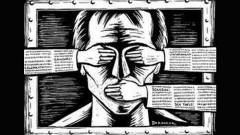We are highly concerned about the arrest and detention of three journalists from the Inquilab newspaper under the Information and Communications Technology Act.
Taken together with the bringing of a case against the publisher and the closure of the paper, this amounts to a direct assault on freedom of speech.
Like the recent indictment against Odihakar, the case was filed following an allegation that the paper published a ‘false and fabricated report.’ It has always been clear that the ICT law enacted first by BNP in 2006 and amended by AL in 2013, contains draconian provisions and the bringing of this case adds weight to such criticisms.
As far as can be seen, the case arises because Inquilab reported on unproven internet claims that Indian army personnel have been present on Bangladeshi territory. Its reports circulated information about these rumors, which have been freely available online.
The truth or otherwise of these reports is not the fundamental principle at stake here. Their veracity is a matter of evidence, that can and should be debated in free media.
However the ICT act’s provisions permit charges to be brought against any newspaper or other media which publishes reports that can potentially be described as false. This self evidently undermines freedom of speech and is neither appropriate in a democracy, nor practical in an age when unsubstantiated rumours can easily be circulated.
The government should debate the facts and veracity of the disputed reports within free media. It must not punish newspapers for disseminating information or points of view with which they disagree.
Source: Dhaka Trilbune










